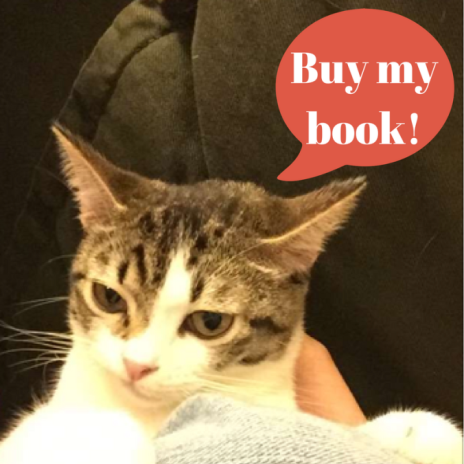
“Grab that cash with both hands and make a stash.”
That’s a line from Pink Floyd’s “Money.” A great song, but certainly not the only one to address its titular subject. In fact, there are tons of songs about money.
It’s an understandable fixation. For songwriters, authors, or any artist, money is a big deal. Most don’t expect to get rich from their work, but many strive to make their art their living. (I know I do!)
As an author, I consider cash in terms of writing. Book sales, advances, and signings have been around for years. But are there newer ways for authors to make money from their work?
Absolutely! The one we’ll discuss today is Patreon. In today’s post, we’ll learn what it is, how it works, and how it can help us start and sustain a writing career. Let’s get to it!
What is Patreon?
Patreon is a website where fans give back to creators they love. Patrons sign up to contribute any amount they’d like, either in onetime or monthly donations. In return, creators usually offer fans exclusive content depending on how much they’ve donated. One dollar each month might not sound like much, but with enough patrons, the revenue adds up.
When most people hear about Patreon, their first reaction is usually something like this: Really? Yes, really! If people like what you create, they’ll donate so you can create more. Plus, giving them extra for their contributions can’t hurt.
Why Should You Try It?
Think of all your favorite services: Netflix, Hulu, HBO, The New York Times. They’re all based on subscriptions. You pay a little each month to access something you love.
Patreon operates on the same principle. Patrons are essentially subscribing to your monthly rewards, contributing as much as they feel comfortable with. That’s the nice thing about the service—you can pay anything, even just a dollar a month.
Imagery and Headline
Start with the headline.

Every profile has a name, then the phrase “is creating” or “are creating” (your choice), followed by whatever it is you’re creating. This is usually just one or two words. I was originally going to write “Stories” for mine, but I wrote “Outlandish Stories” because I thought it would stand out more. Also, I like the word “Outlandish.”
You’ll also want a picture. If you’ve read my book, the above image will look familiar. Try to find one where you’re smiling. And don’t use a blurry Facebook profile pic, please.
You’ll also need a cover image, which might be a bit trickier. Many Patreon authors create cover images out of their book covers, but if you’re like me and you’ve only published one book so far, that might not be an option. I used a free sharing photo website called Unsplash for mine.
My stack of books is perhaps not the most striking thing in the world, but it’s a professional image that clearly shows what I’m creating. That’s the cover image’s only job: show people what you’re creating at a glance. If you’re an author and your cover image is, say, a field of cows, you might confuse your patrons.
The Overview
This is the pitch. Introduce yourself, discuss your rewards, and encourage patrons to contribute to your cause.
Most authors I’ve seen use headings to break up their text, because these Overviews can (and probably should) get pretty lengthy. For many authors who already have huge established fan bases, kicking off with a simple “This is me” statement works just fine. For example, here’s the first line of author Tobias Buckell’s Patreon page:

Or author Saladin Ahmed:

Or author N.K. Jemisin:

(Note: Jemisin’s Patreon page is now closed, so please look to the part after the italics.)
Though my cats might think I’m famous, I’m not. Therefore, I opted for an intro about my stories instead of one about myself.

Write something that will convince prospective patrons to keep reading. Fair warning: That can be harder than it sounds. And it can be even harder if you haven’t written the whole overview yet. So feel free to start elsewhere. Flesh out your ideas. Once you have the entire thing written, revisit that first paragraph.
Next, tell your fans why you chose Patreon. Almost every creator on the site does it. “Because I want money” is not enough. Everybody wants money!
For me (and for most other writers), Patreon is a step toward a full-time writing income. Even if you write a book a year, those spurts of income likely aren’t enough to last you all 12 months. Patreon presents a unique opportunity for writers because you can build a consistent income each month. For some, that’s all we need.
Now that patrons know who you are and why you need their help, tell them about your work. What have you written and what are you writing? Again, if you’re like me and you don’t yet have much published work, elaborate on all the writing you will do with enough donations.
Throughout the Overview, include your personality. I tried to do that in numerous places. For example, I mentioned authors whose work has influenced my own. I also threw in a picture of my cats. I think people are more likely to contribute to you if you seem like a likeable person. And I bet you are a likeable person. Show it!
Finally, our moms taught us the value of saying “thank you.” I believe that goes double on Patreon. Patrons make our writing possible, so we really can’t say thanks enough.
The Tiers
This is, in my opinion, the hardest part of the whole process. Creating rewards and adequately charging for them is challenging. Hell, some companies hire other companies just to do their pricing for them. It’s a pain!
Look to other authors’ Patreon pages and see how they do it. My donation tiers are very similar to those of the authors I mentioned above. If it works for them, why change it?

Almost all writers offer a huge range of donation. Always start at $1 and provide good value there. Most writers give their patrons a new short story each month for that price. Then scale up to a massive tier—one you wouldn’t believe anyone would ever contribute to. Doing so makes your work appear valuable while also making your lower-priced tiers appear affordable. And there’s always the chance a patron will like you enough to join that tier. You never know!
Setting a Goal
This is a fun section where all your patrons can work together. The creator sets a goal of total patrons or total revenue. If the goal is met by a certain date, all patrons get a sweet prize.

I’ve set a goal of getting 50 patrons by the end of 2019. If we reach it, every patron receives a terrible short story I wrote a long time ago. So bad it’s good. Or at least I think so…
Try Patreon!
I hope this post was helpful. If you’ve always wanted to make a living from your writing, consider using Patreon. And if you become one of my first patrons, I’ll be eternally grateful.
Grab that cash and make your stash, authors. Use it to write more. The world needs your work!
Kyle A. Massa is a speculative fiction author living somewhere in upstate New York with his wife and their two cats. His stories have appeared in numerous online magazines, including Allegory, Chantwood, and Dark Fire Fiction. His debut novel, Gerald Barkley Rocks, is available now on Amazon Kindle.




















